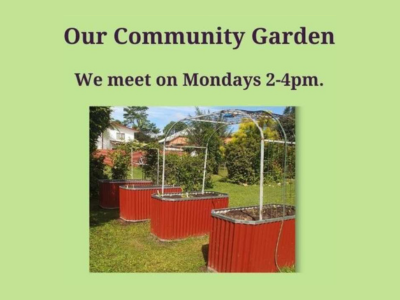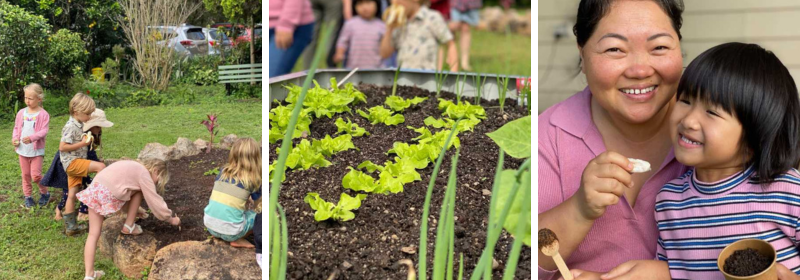Community stories: 25 June 2024

An ANZ Seeds of Renewal Grant has helped a far north Queensland community vulnerable to food insecurity establish a community garden. It’s been invaluable in educating locals on how they can grow their own food and alleviate the impacts of road closures that often follow in the wake of cyclones, affecting local food deliveries.
The project has been led by Eacham Community Help Organisation (ECHO), the Neighbourhood House for the South East Tablelands, based in Malanda in Far North Queensland. Day to day, it delivers individual and community support services, as well as in-home aged care, facilities and events, activities and workshops. The House is used by a large number of people across the community including youth, parents, First Nations groups, senior Australians, people living with disability, visiting services, and those facing hardship and crisis including homeless persons, parents and families.
One of the challenges that ECHO deals with across all these groups is food insecurity, especially following the impacts of disaster events like cyclones, which can see road transport delayed due to damaged and flooded roads, leaving local supermarkets bare of stock for days or even weeks.
So, a community garden was included in both the Malanda Masterplan and the Tablelands Regional Council Community Roadmap. As the community hub, ECHO took the lead on this project, which is yielding broad community benefits.
The focus has been growing together, learning how to propagate, harvest and prepare suitable foods at the Community Garden. By understanding which perennial plants and fruiting trees and bushes are suited to the tropics, and how to grow them, individuals and families can have an ongoing source of fresh food. Afterall, “being empowered enhances overall wellbeing.”
To support their efforts, ECHO received a $9,340 grant from the ANZ Seeds of Renewal Program in 2022. Funding went toward the garden design, plant recommendations, initial planting of fruiting trees, bushes, vines and rootstock of tropical staples and raised beds for demonstration herb garden and salad garden. It also contributed to wages for a community worker to manage the project for the first six months, with assistance from volunteers and, as the demonstration garden progressed, it helped fund short workshops delivered by an experienced community worker and volunteer.
Gardeners meet every week, including a core group of four regulars, four occasional participants and 20 visitors who share knowledge or learn. Groups, including home schoolers and school students, have come for dedicated volunteering sessions too. In fact, the garden has become the venue for special events like Mental Health Week, NAIDOC day, staff events and more.

From all accounts, there have been fantastic crops of food – plenty for volunteers, visitors and emergency relief. According to Belinda Moore, Community Engagement and Development Officer, “This is a pleasant surprise and a testament to the efforts of the volunteers. Everyone is learning a lot about tropical edibles and taking cuttings away to share and grow.
“The grant helped us to launch into our Community Garden with purpose and the support of a paid worker. Without it, progress would be slow, the garden would be nowhere near as well-made and productive, and volunteers would be less supported.
“Including children in the garden is the best outcome so far – it’s exciting for the volunteers to know that ‘their’ garden is being shared to influence and inspire children. Showing people some of the tropical edibles they can easily grow from cuttings is the ongoing legacy of this garden and meets the intention of building a resilient and thriving community.”

